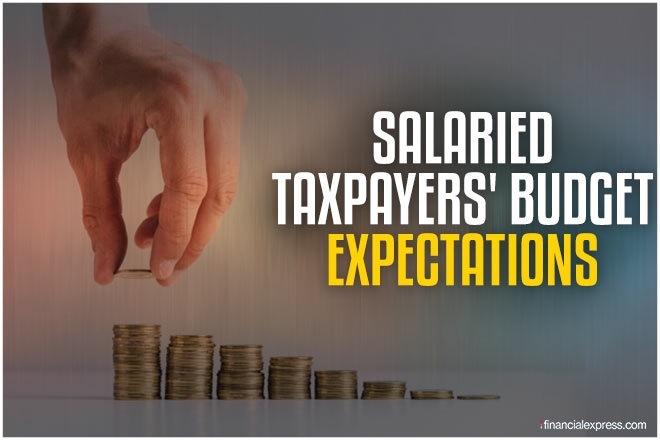Union Budget 2019: The Interim Budget 2019 provided a tax rebate resulting in NIL tax payable to resident individuals whose taxable income does not exceed Rs 5 lakh. The standard deduction for salaried employees was enhanced to Rs 50,000 from Rs 40,000.
In addition, individuals can now consider two house properties as self-occupied and there is no requirement to disclose the notional rent for the second self-occupied/vacant property. Further, if the capital gain on sale of house property is up to Rs 2 crore, then exemption would be available even if the person makes investment in two properties, though this benefit can be claimed only once in a lifetime (subject to other conditions).
Expectations from Union Budget 2019 by salaried individuals
# Revision in the tax slab rates: Mid-income level tax payers expect a revision in the tax slab rates rather than a further rebate. While individuals with income up to Rs 5 lakh do not pay tax, salaried individuals in the income range of Rs 5 lakh to Rs 10 lakh are taxed at the rate of 20 per cent. These individuals expect relief in the upcoming Budget.
The interim Budget provided an additional relief in the form of rebate to resident individuals. Increasing the basic exemption limit would result in reduction of tax filers as those below the basic exemption limit are not mandated to file their tax returns. Hence much change is not expected in this regard.
# Deduction under Section 80C: The government during its initial Budget during the first term had increased the deduction limit for Section 80C from Rs 1 lakh to Rs 1.5 lakh. Individuals have been expecting an increase in the limit to Rs 2 lakh / 2.5 lakh over the last few years. Apart from the increase in the standard deduction by Rs 10,000, the interim Budget did not provide any specific benefit to the salaried class. Hence, the enhancement of deduction limits would be welcome to salaried individuals.
# Deduction under Section 80D: Considering the rise in medical expenses, individuals expect increase in the deduction for premiums paid towards medical insurances and expenses incurred for preventive health check-up. Individuals expect the deduction under Section 80D to be increased from Rs 25,000 to Rs 35,000 (non-senior citizens).
# Children education allowance and hostel allowance: The deduction for children education allowance and hostel allowance is Rs 100 and Rs 300, respectively, per month per child up to a maximum of two children.
There has been no increase in the limit of deduction since 1997. With increased cost of education, an increase in the deduction limit for these allowances has been a demand for more than a decade.
# National Pension Scheme (NPS): At present, withdrawal from NPS is partially taxable. Out of the total accumulated corpus, 40 per cent is utilised for the purchase of the annuity, which is tax exempted. Out of the remaining 60 per cent of the accumulated corpus withdrawn by the NPS subscriber at the time of retirement, 40 per cent is tax exempt and the remaining 20 per cent is taxable.
There is an expectation that the entire 60 per cent of the accumulated corpus withdrawn would be exempt from tax. NPS contribution would become completely exempt if the government brings in the change and this may result in increasing the number of subscribers of the scheme.
# Long Term Capital Gain (LTCG) on mutual funds: In the Finance Act 2018, LTCG on sale of equity-oriented mutual funds subject to Securities Transaction Tax was brought under the purview of taxation if the gain exceeded Rs 1 lakh.
Given that direct tax collections have not been as expected by the government, it is unlikely that these expectations will be fulfilled, though individuals expect some relief in taxation on LTCG from listed securities.
The government during its previous term started discussions on reforms pertaining to direct taxes and redrafting a new Direct Tax Code (DTC) which would replace the Income Tax Act. As per latest reports, CBDT has been provided an extended term till end of July 2019 to submit the draft Direct Tax Code. It is expected that the FM would lay down the framework of the DTC which is aimed at simplifying the tax legislation and widening the tax base. Given that the release is just round the corner, too many changes in the Budget are not expected. However, enabling provisions may be put in place in the Act to enable the government to make necessary changes in the law, as was introduced in the GST regime.
(By Tapati Ghose, Partner, Deloitte India; and Robin Bose, Assistant Manager with Deloitte Haskins and Sells LLP)


